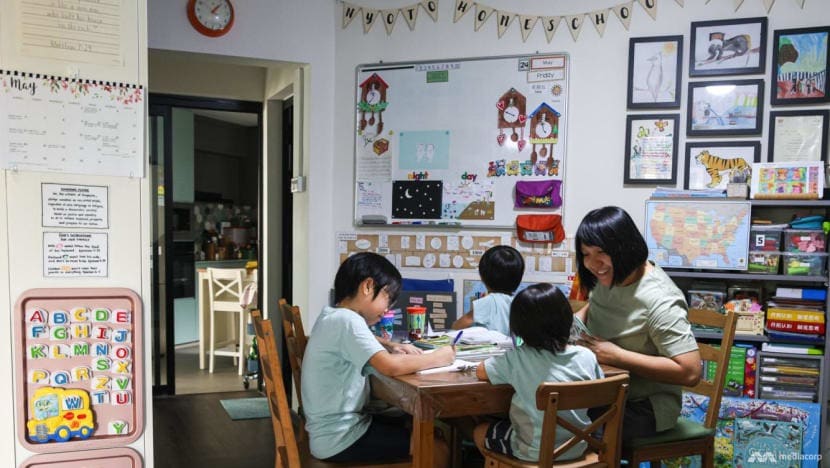
The Compulsory Education Act (CEA) and Ministry of Education (MOE) guidelines govern the legal framework for homeschooling in Singapore. All Singaporean children between the ages of 6 and 15 are required to attend school under the Compulsory Education Act. This education can be obtained by either attending a registered school or by homeschooling.
In Singapore, homeschooling is recognised as a legitimate alternative to traditional schooling. To homeschool legally, parents must apply to the Ministry of Education for a Certificate of Exemption (COE). The application process entails submitting a proposal outlining the homeschooling plans, curriculum, assessment methods and evidence of the parent’s ability to provide a sufficient education. Each application is evaluated on a case-by-case basis by the Ministry of Education, taking into account factors such as the child’s best interests, the parent’s qualifications and the suitability of the proposed homeschooling environment.

Image Credit: https://www.channelnewsasia.com/singapore/homeschooling-not-faint-hearted-family-parents-children-education-big-read-4379321
Once the COE is granted, homeschooling parents must follow the Ministry of Education’s homeschooling guidelines in Singapore. These guidelines aim to ensure that homeschooled children receive a quality education on par with that of traditional schools. Parents must provide a curriculum that includes the mandatory subjects of English, Mathematics, Science and, if applicable, Mother Tongue Language.
Parents can design and implement their own curriculum, taking into account their child’s interests, learning styles and developmental needs. However, the curriculum must adhere to the Ministry of Education’s educational standards. This means that parents must ensure that the curriculum is comprehensive, well-rounded and aligned with each subject’s learning objectives.
Homeschooling parents are responsible for ensuring that their children receive regular assessments and evaluations in addition to the curriculum. Parents are required by the Ministry of Education to provide evidence of their child’s progress through periodic assessments. These assessments, which can take the form of exams, portfolios or projects, should be carried out in a way that allows for a fair and accurate evaluation of the child’s learning outcomes.
Parents must also keep records of their child’s homeschooling experience such as attendance records, coursework, assessments and any other relevant documentation. The Ministry of Education may request these records for verification.

Image Credit: https://dribbble.com/shots/15802250-Homeschool
Furthermore, homeschooling parents in Singapore have certain responsibilities regarding their children’s social and emotional development. The Ministry of Education encourages parents to provide socialisation opportunities for their children, such as involvement in homeschooling networks, co-op classes or extracurricular activities. To improve their social skills, form bonds with others and cultivate a sense of belonging, homeschooled children need to interact frequently with peers and the larger community.
To offer advice and support, the Ministry of Education keeps in regular contact with parents who homeschool their children. They conduct regular inspections and evaluations to ensure that homeschooling standards are met and that children are receiving an appropriate education. If the Ministry of Education has concerns about a child’s homeschooling programme, it may request additional information, conduct visits or make recommendations for improvement.
Overall, Singapore’s homeschooling legal framework seeks to strike a balance between parental autonomy in educating their children and ensuring that homeschooled children receive a quality education. The Ministry of Education’s requirements and guidelines help to protect the educational well-being of homeschooled children by ensuring that they have access to a comprehensive curriculum, regular assessments and opportunities for socialisation. Homeschooling parents can provide their children with a meaningful and effective educational experience if they follow the legal framework and fulfil their obligations.


